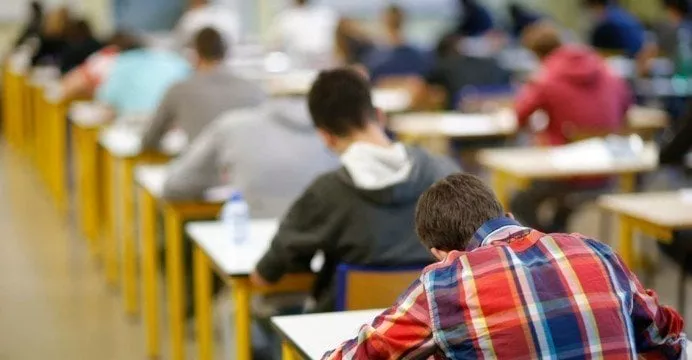Unprecedented grading policy betrays CAIE students
Protests emerge, federal govt urges CAIE to take notice of the situation
KARACHI:Around March, when the world was still trying to make sense of the global pandemic, Cambridge Assessment International Education (CAIE) had announced to suspend all its examination practices due for the May/June 2020 series. Instead, after much ado, the largest foreign examination exercise had decided to adopt an alternative grade prediction system based on past performance and available evidence to issue certifications to registered candidates. However, four months after cancellation, the awarded qualifications have resulted in a massive outcry by the hundreds and thousands of Pakistani students who’ve alleged the grades to be to be unfair and discriminatory.
The protesting students believe that Cambridge’s grade prediction system has inexplicably downgraded their qualifications, causing many to lose university placements and essential scholarships.
“I had a conditional offer from a Canadian university. My expected grades were A*, A and a B in the three subjects I registered for and I was all set to start my undergraduate studies this year. But much to my surprise, when I received my qualifications on August 11, my grades had been brought down to a D, B and C,” said Abduallah Aqeel, an A Level student from Lahore. “Needless to say, my admission has now been revoked. Even If Cambridge does reach some kind of a readjustment, the damage’s already been done,” he added.
Aqeel’s story, although regretful, echoes with many students across Pakistan whose academic futures have been put in jeopardy at the hands of what’s claimed to be a callous system. Among these students are also some who were downgraded to the extreme extent of being left ungraded in the May/June 2020 series. According Aisha*, a Cambridge student from Islamabad, she had already invested three years of her life trying to supplement her A Level grades and this year was expected to be her last attempt. Aisha was downgraded from a D to a U on August 11th. “I know my grades were not remarkable, but my question is how I can be issued a U, which is basically a fail grade, for a paper which I haven’t even attempted?” For students like Aisha, there appears little option right now but to invest another academic year in retaking their exams, unless CAIE agrees to revise the May/June 2020 results. “This is a clear blunder on CAIE’s part. The same happened in Scotland, where all downgraded results were withdrawn and replaced by the original estimates. Cambridge’s promised the same to students in England and Wales. So it’s only fair they accommodate the students in Pakistan too,” expressed M Aliyan, a straight-A student of Roots Millennium College in Karachi, who had to forfeit a medical university admission due to the downgrading. As a result, Aliyan will be joining hundreds of O and A level candidates on Saturday, August 15 at Karachi Press Club to voice their reservations and protest CAIE’s alleged unfair treatment of the country’s students.
Upon hearing the concerns of the students, Federal Education Minister Shafqat Mehmood took to Twitter on Thursday to address the matter. “I want all students to know that we are very unhappy with the result of O and A level and have conveyed our reservations in no uncertain terms to Cambridge. We expect a response soon,” he expressed. “We have no intentions of closing any foreign exams…the choice of what stream to take will always remain with the students,” he followed up in a separate tweet about updating the local education curriculum.
On the other hand, according to Cambridge Deputy Country Manager Pakistan Shahid Ashraf, Cambridge has been listening to schools and students as they receive their results and understands that there are some who are disappointed. “We are aware of decisions taken by some government authorities in the UK, and we await more information early next week about how they will be implemented. Grades must still be awarded consistently and trusted by universities,” Ashraf mentioned in a correspondence with The Express Tribune. “Schools can make different sorts of appeals to us, and students can take our exams in October and November, with extra subjects available and alternative arrangements to support schools with distancing and safe reopening,” he added, offering a seemingly ad hoc solution to an issue jeopardising the academic future of a generation.
Some names have been changed to protect source anonymity.
Additional reporting by Muhammad Phaseeh Ul Haque


COMMENTS
Comments are moderated and generally will be posted if they are on-topic and not abusive.
For more information, please see our Comments FAQ